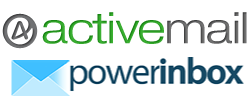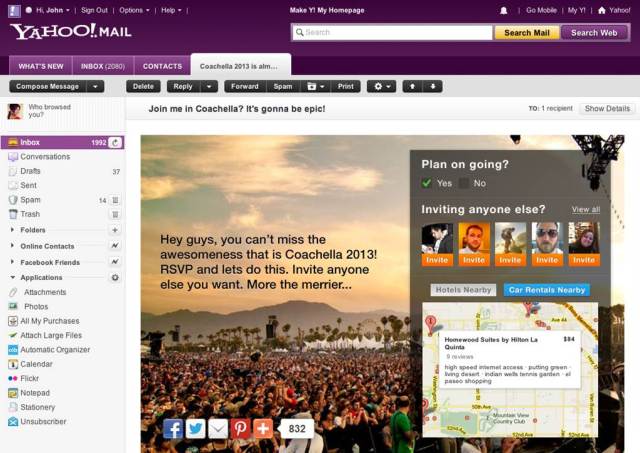PowerInbox, an email platform company which offers interactive email apps for consumers and marketers, has raised a $10 million Series A round jointly led by Atlas Venture, Longworth Partners and Battery Ventures, following the company’s merger with NYC-based ActivePath, which offers a similar interactive email solution.
Also participating in the new round were Genesis, Gimv and Correlation Ventures. PowerInbox previously had $1.9 million in seed funding from Atlas, Longworth, Correlation, and other angel investors, while ActivePath had raised a $10 million Series B in September 2011 from Battery Ventures and Gimv, alongside existing investor Genesis Partners. The additional $10 million Series A, which closed last week, was placed into the combined company from investors who had seed capital in PowerInbox, and saw the benefit of investing more significantly in the new company, PowerInbox CEO Matt Thazhmon tells us.
Unlike PowerInbox, which began by targeting the consumer space, ActivePath has a large install based in the enterprise. Founded in 2007, ActivePath publicly introduced its social email platform known as ActiveMail in July 2012, allowing users watch videos and post to Facebook or Twitter right from within their email applications. The platform also adds website logos next to email messages for easy identification when scanning a crowded inbox, as does PowerInbox.
PowerInbox, meanwhile, offered many of these same features, but was focused on turning email into a platform where developers could build their own applications using a provided API. To date, the company offered over 50 of these interactive apps, including those built in-house and those from third parties. These include not only Facebook, Twitter and YouTube, but also those from several other popular web companies like Groupon, Instagram, LinkedIn, Vimeo, Foursquare, Flickr, Amazon, Hulu, Kickstarter, Pinterest, Picasa, Scribd, SlideShare, Spotify, Tumblr, and others, each with their own unique functionality.
According to Thazhmon, the idea to combine the two companies was kicked off late this summer, as each had investors in Boston who knew each other. The management teams met, and realized they shared the same vision. ActivePath saw potential for making interactive email mainstream in the consumer space that PowerInbox had been targeting. The company also offered extensive experience in the enterprise which PowerInbox needed to grow its own business.
Going forward, the combined company will offer both consumer and enterprise products, with key product components being added from ActivePath to the PowerInbox platform. PowerInbox will then become the brand name of the company, says Thazhmon, and will have 17 employees in Boston, Silicon Valley, NYC and Israel.
ActivePath CEO Jeff Kupietzky will serve as CEO of the new company while PowerInbox founders, Matt Thazhmon, Dileep Thazhmon and Lance Jackson, will continue in management roles, focused on product development. The combined entity will have 500,000 users, over 50 email apps, and will have served over 5,000,000 interactive emails over the last year. Thazhmon adds that PowerInbox emails see an engagement rate that’s three times higher than static email.
One immediate new feature available on the consumer side is the addition of in-email games. Launching very soon, consumers will be able to play casual games like Poker or Scrabble with friends. (TechCrunch readers can sign up for early access here).
On the enterprise side, the company will continue to work with email providers to offer their users dynamic, interactive email solutions that don’t require downloads. (The current solutions require browser extensions or Outlook add-ons for platforms where integration is not built-in.) Thazhmon offered a few examples of what this functionality can bring, including one-click shopping, the ability to book flights and reserve hotel rooms, and more. “We spend a lot of time in email daily, might as well make it productive,” he says.


